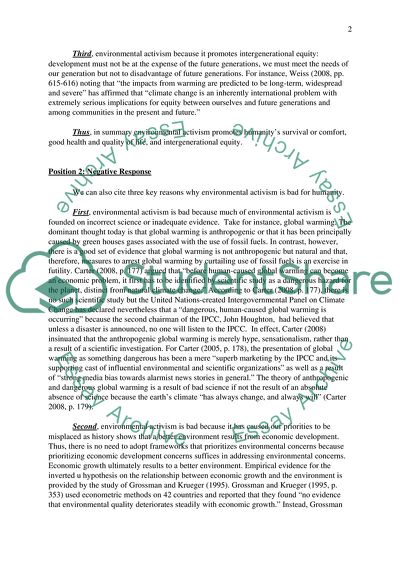Cite this document
(Is Environmental Activism Good for Humanity Assignment - 1, n.d.)
Is Environmental Activism Good for Humanity Assignment - 1. https://studentshare.org/environmental-studies/1760804-environmental-issue-assignment
Is Environmental Activism Good for Humanity Assignment - 1. https://studentshare.org/environmental-studies/1760804-environmental-issue-assignment
(Is Environmental Activism Good for Humanity Assignment - 1)
Is Environmental Activism Good for Humanity Assignment - 1. https://studentshare.org/environmental-studies/1760804-environmental-issue-assignment.
Is Environmental Activism Good for Humanity Assignment - 1. https://studentshare.org/environmental-studies/1760804-environmental-issue-assignment.
“Is Environmental Activism Good for Humanity Assignment - 1”. https://studentshare.org/environmental-studies/1760804-environmental-issue-assignment.


